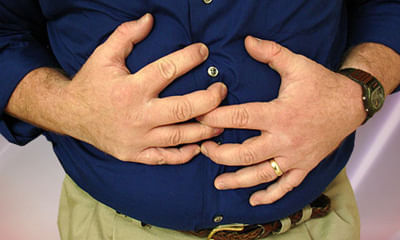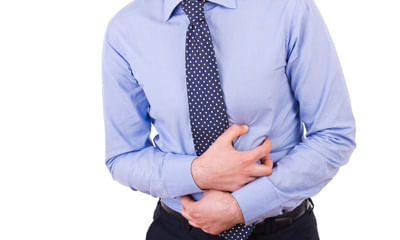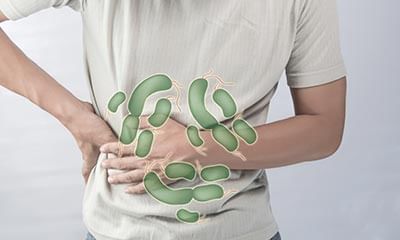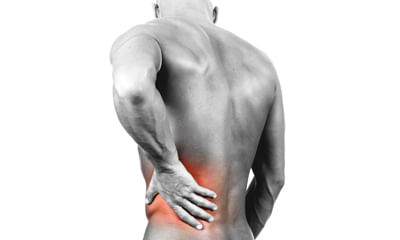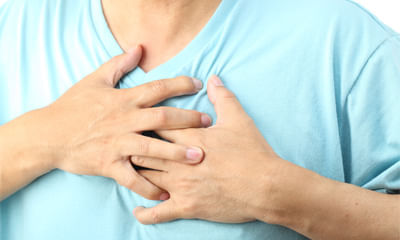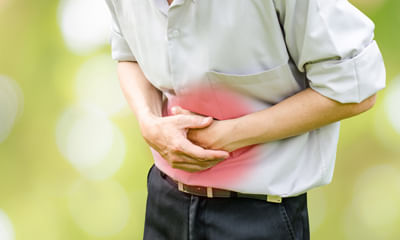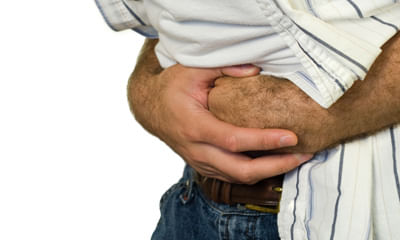Abdominal Hernia Pain Relief
I am suffering from stomach ache for last two days please suggest me the quick for it. ...
Ask Free Question
Dear Lybrateuser, -Avoid fried, spicy & junk food - have plenty of oral fluids including 7-8 glasses of water for proper digestion - take a pain relief tablet after meals - take tablet Pan 40, 1 tablet daily half an hour before breakfast - get checked by a local physician if not much improvement.
I have acid problems. My stomach too much heavy after eat. My tummy always feeling like burning inside. Feeling suffocat ...
Ask Free Question
What you are having is Gastroesophageal reflux disease Gastroesophageal reflux disease (GERD) is a condition in which the stomach contents leak backwards from the stomach into the esophagus (the tube from the mouth to the stomach). This can irritate the esophagus and cause heartburn and other symptoms. Causes When you eat, food passes from the throat to the stomach through the esophagus. A ring of muscle fibers in the lower esophagus prevents swallowed food from moving back up. These muscle fibers are called the lower esophageal sphincter (LES). When this ring of muscle does not close all the way, stomach contents can leak back into the esophagus. This is called reflux or gastroesophageal reflux. Reflux may cause symptoms. Harsh stomach acids can also damage the lining of the esophagus. The risk factors for reflux include: Use of alcohol (possibly) Hiatal hernia (a condition in which part of the stomach moves above the diaphragm, which is the muscle that separates the chest and abdominal cavities) Obesity Pregnancy Scleroderma Smoking Symptoms can also be caused by certain medicines Common symptoms of GERD include: Feeling that food is stuck behind the breastbone Heartburn or a burning pain in the chest Nausea after eating Less common symptoms are: Bringing food back up (regurgitation) Cough or wheezing Difficulty swallowing Hiccups Hoarseness or change in voice Sore throat Symptoms may get worse when you bend over or lie down, or after you eat. Symptoms may also be worse at night. If you are overweight or obese, in many cases, losing weight can help. Avoid drugs such as aspirin, ibuprofen, or naproxen. Take acetaminophen to relieve pain. Take all of your medicines with plenty of water. When your doctor gives you a new medicine, ask whether it will make your heartburn worse. You may use over-the-counter antacids after meals and at bedtime, although the relief may not last very long. Common side effects of antacids include diarrhea or constipation. Other over-the-counter and prescription drugs can treat GERD. They work more slowly than antacids, but give you longer relief. Your pharmacist, doctor, or nurse can tell you how to take these drugs. Proton pump inhibitors (PPIs) decrease the amount of acid produced in your stomach H2 blockers also lower the amount of acid released in the stomach Anti-reflux surgery may be an option for people whose symptoms do not go away with lifestyle changes and medicines. Heartburn and other symptoms should improve after surgery. But you may still need to take drugs for your heartburn.
I am feeling pain in the lower abdomen whenever I use weight lifting in gym and during exercises. What should I do for t ...
Ask Free Question
Mr. lybrate-user, Please get checked your self for Hernia. This is what it sounds like. Pain can be for other reasons we'll. But the amount of info that you have provided is not enough to make a conclusion. If you wish to make a diagnosis more information is needed. Please visit a doctor or else you can chat or call me if you cannot visit a doctor for some reason.
Hii sir/ madam I'm a professional powerlifter 3 Days back I was doing sumo deadlift I tied a 4 cm long and 10 mm thick l ...
Ask Free Question
You need to improve the tone of the muscles in a rhythmical manner. If you do that with proper diet restriction nothing will happen to you. Body pain is there after gym activity due to tiredness and you need to consume good protein and iron diet in your body which will help you to break the fatigue and body pain. You have to reduce the weight by walking minimum 3-4 kms per day. Slowly reduce the weight and slowly avoid adding salt in the diet which will help you to prevent water retention in the body. Excess salt in general leads to water in the body which might be the reason for you legs to pain as the leg will automatically become oedematous.
Hello, I'm 37 year old male. Last year I had an inguinal hernia surgery. During pre-examination of surgery I had an anxi ...
Ask Free Question
This is not heart disease. Try anti acid medicine and see if it brings relief. In inflammation affected area becomes red. You have pain and soreness in upper chest, but it may not be inflammation.
I am GERD and Hiatus Hernia. My stomach has been paining a lot for last six months in spite of regular medication. Prese ...
Ask Free Question
Hello dear lybrate-user, hi Warm welcome to Lybrate.com I have evaluated your query thoroughly.* The cause of stomach pain needs evaluation with further work up in form of lab tests, ultrasound and upper GI endoscopy according to the clinician concern.* Primary relief with - plenty of liquids.- consume soft, light diet.- avoid oily, spicy non veg, junk foods.- anti spasmodic tablets as dicyclomine or drotaverine would help.- avoid smoking, alcohol if using. Hope this clears your query. Wishing you fine recovery. Welcome for any further assistance. Regards take care.
My age is 22 year. 4-5 month ago I have erosive gastritis .I am feeling pressure and pain in mid upper chest. I went to ...
Ask Free Question
What you are having is Gastroesophageal reflux disease Gastroesophageal reflux disease (GERD) is a condition in which the stomach contents leak backwards from the stomach into the esophagus (the tube from the mouth to the stomach). This can irritate the esophagus and cause heartburn and other symptoms. Causes When you eat, food passes from the throat to the stomach through the esophagus. A ring of muscle fibers in the lower esophagus prevents swallowed food from moving back up. These muscle fibers are called the lower esophageal sphincter (LES). When this ring of muscle does not close all the way, stomach contents can leak back into the esophagus. This is called reflux or gastroesophageal reflux. Reflux may cause symptoms. Harsh stomach acids can also damage the lining of the esophagus. The risk factors for reflux include: Use of alcohol (possibly) Hiatal hernia (a condition in which part of the stomach moves above the diaphragm, which is the muscle that separates the chest and abdominal cavities) Obesity Pregnancy Scleroderma Smoking Symptoms can also be caused by certain medicines Common symptoms of GERD include: Feeling that food is stuck behind the breastbone Heartburn or a burning pain in the chest Nausea after eating Less common symptoms are: Bringing food back up (regurgitation) Cough or wheezing Difficulty swallowing Hiccups Hoarseness or change in voice Sore throat Symptoms may get worse when you bend over or lie down, or after you eat. Symptoms may also be worse at night. If you are overweight or obese, in many cases, losing weight can help. Avoid drugs such as aspirin, ibuprofen, or naproxen. Take acetaminophen to relieve pain. Take all of your medicines with plenty of water. When your doctor gives you a new medicine, ask whether it will make your heartburn worse. You may use over-the-counter antacids after meals and at bedtime, although the relief may not last very long. Common side effects of antacids include diarrhea or constipation. Other over-the-counter and prescription drugs can treat GERD. They work more slowly than antacids, but give you longer relief.
I have Chronic cough and acid reflux and unable to eat and drink since one month even heart burn throat burn chest pain. ...
Ask Free Question
What you are having is Gastroesophageal reflux disease Gastroesophageal reflux disease (GERD) is a condition in which the stomach contents leak backwards from the stomach into the esophagus (the tube from the mouth to the stomach). This can irritate the esophagus and cause heartburn and other symptoms. Causes When you eat, food passes from the throat to the stomach through the esophagus. A ring of muscle fibers in the lower esophagus prevents swallowed food from moving back up. These muscle fibers are called the lower esophageal sphincter (LES). When this ring of muscle does not close all the way, stomach contents can leak back into the esophagus. This is called reflux or gastroesophageal reflux. Reflux may cause symptoms. Harsh stomach acids can also damage the lining of the esophagus. The risk factors for reflux include: Use of alcohol (possibly) Hiatal hernia (a condition in which part of the stomach moves above the diaphragm, which is the muscle that separates the chest and abdominal cavities) Obesity Pregnancy Scleroderma Smoking Symptoms can also be caused by certain medicines Common symptoms of GERD include: Feeling that food is stuck behind the breastbone Heartburn or a burning pain in the chest Nausea after eating Less common symptoms are: Bringing food back up (regurgitation) Cough or wheezing Difficulty swallowing Hiccups Hoarseness or change in voice Sore throat Symptoms may get worse when you bend over or lie down, or after you eat. Symptoms may also be worse at night. If you are overweight or obese, in many cases, losing weight can help. Avoid drugs such as aspirin, ibuprofen, or naproxen. Take acetaminophen to relieve pain. Take all of your medicines with plenty of water. When your doctor gives you a new medicine, ask whether it will make your heartburn worse. You may use over-the-counter antacids after meals and at bedtime, although the relief may not last very long. Common side effects of antacids include diarrhea or constipation. Other over-the-counter and prescription drugs can treat GERD. They work more slowly than antacids, but give you longer relief. Your pharmacist, doctor, or nurse can tell you how to take these drugs. Proton pump inhibitors (PPIs) decrease the amount of acid produced in your stomach H2 blockers also lower the amount of acid released in the stomach Anti-reflux surgery may be an option for people whose symptoms do not go away with lifestyle changes and medicines. Heartburn and other symptoms should improve after surgery. But you may still need to take drugs for your heartburn.
My grandfather has hernia problem. He wants to go for operation but after two months. please suggest some medicine or ex ...
Ask Free Question
Hernia needs only surgery and no medicine can help. To say anything more you have to tell where the hernia is.
I was diagnosed with inguinal hernia (left side). Most of the time intestine stays in. It pops out only during long stan ...
Ask Free Question
Rameez first let me appreciate you asking the question with details... If possible you should avoid surgery as much as possible... Its advisable to use alternative therapies if they are competent enough... Surgery is only advisable when there are any complications... So you should start the exercise... plus you also can think of taking homeopathic medicines after proper consultation... Till then you can start with Nux Vomica 30 (homeopathic) TDS...

